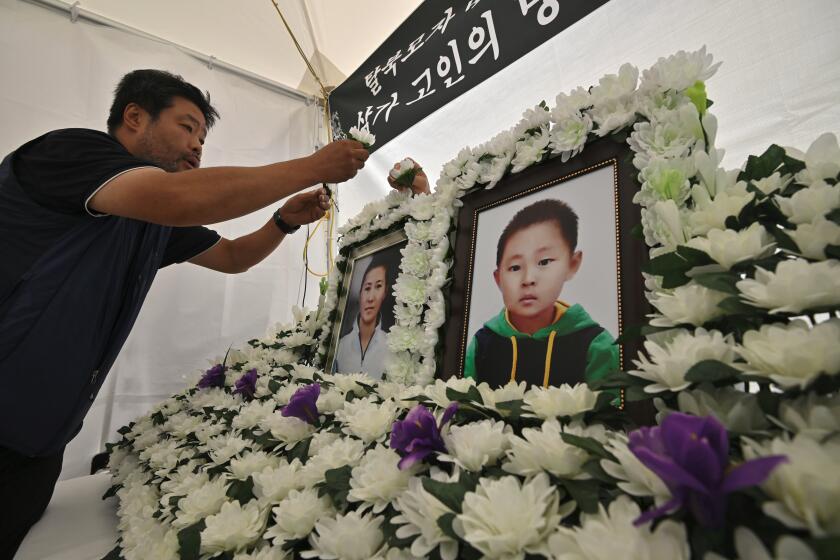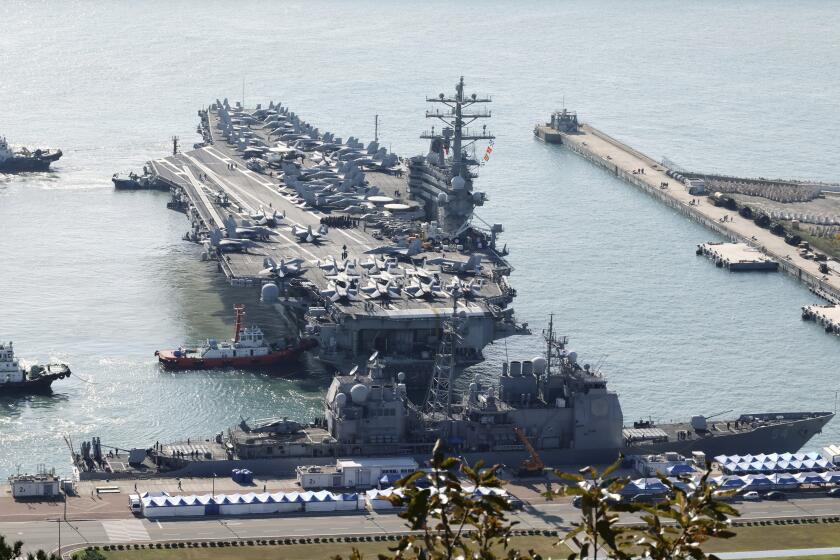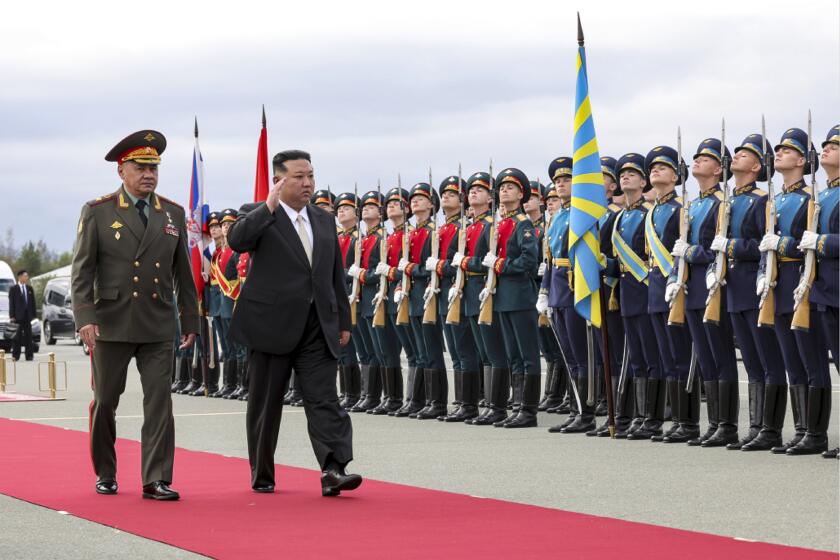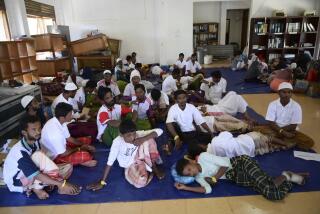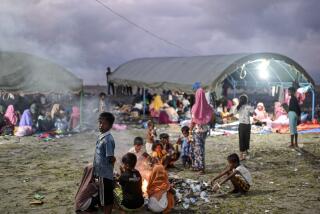In rare case, 4 suspected North Korean defectors found in small boat off South Korea
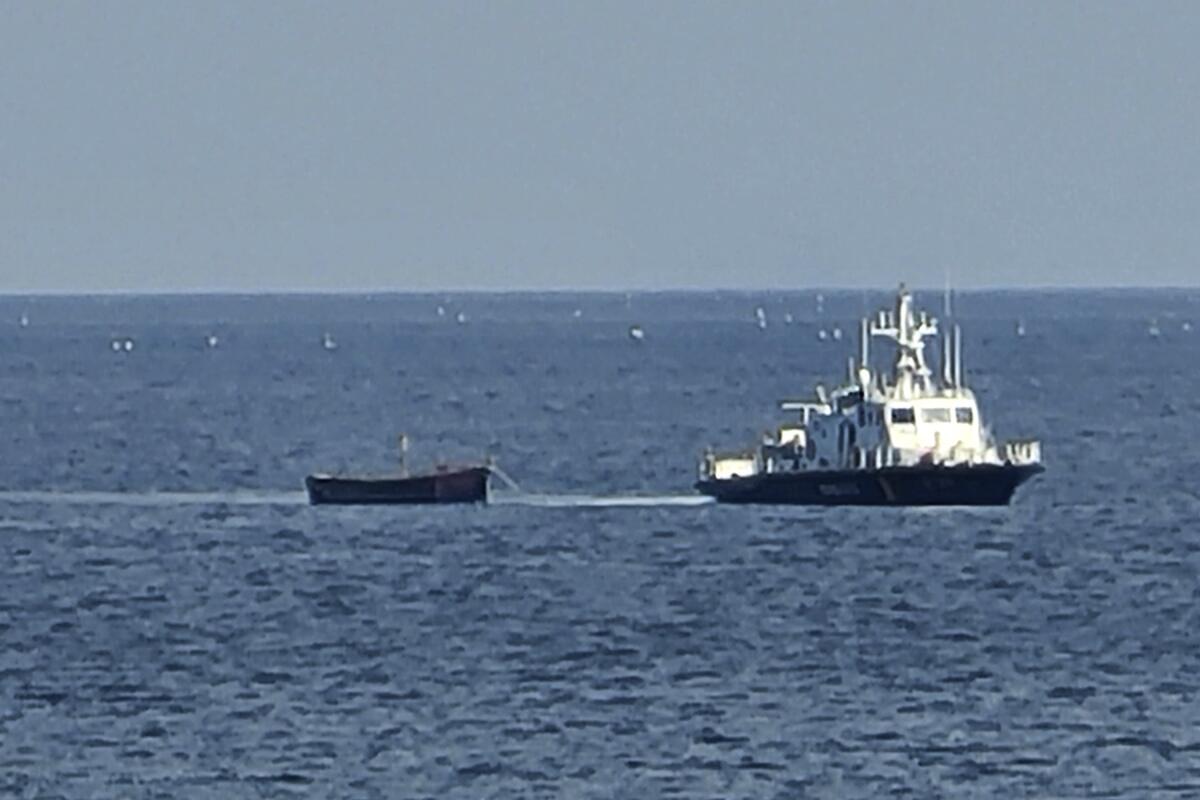
SEOUL — Four North Koreans were found in a small wooden boat in South Korean waters on Tuesday in what is likely a rare case of North Koreans taking a risky sea voyage to flee to the South, Seoul officials said.
More than 30,000 North Koreans have fled to South Korea to avoid poverty and political oppression since the late 1990s. A vast majority of them have come via China and then Southeast Asian countries, but defecting by sea is uncommon because it’s more dangerous.
A South Korean coast guard ship found the boat south of the two Koreas’ eastern sea border on Tuesday morning, after a report by a fishing boat. The four people on board identified themselves as North Koreans, coast guard officials said.
South Korea’s military said it secured the custody of the North Koreans in coordination with the coast guard, after chasing their boat along the sea border. A military statement said the North Koreans were suspected of defecting to South Korea, but gave no further details.
An Army private who fled to North Korea before being returned to the U.S. has been charged with desertion and detained by the U.S. military.
South Korean public broadcaster KBS, citing an unidentified government official, reported that the four North Koreans — a man and three women — are members of one family. KBS said they weren’t armed and didn’t wear military uniforms when they were found.
South Korea’s Unification Ministry declined to provide personal details of the four, saying an investigation was underway.
Defecting by sea is much more dangerous and many North Korean escapees are believed to have ended up dying after their boats sank amid bad weather.
But some still opt to use a sea route because they can defect in a group and it takes much less time than the China-Southeast Asian route, which typically takes weeks or months before coming to South Korea, according to Ahn Kyung-su, head of dprkhealth.org, a website focusing on health issues in North Korea.
Ahn, who has interviewed many defectors, said that North Koreans typically slip across their country’s border with China alone or in pairs without sharing their escape plans with anyone, including their family members, because of fears about arrests. Ahn said the four North Koreans found Tuesday are likely from one family, who left a coastal town relatively close to the South Korea sea border the previous day.
News of the death of Han Sung-ok spread rapidly among the North Korean refugees in South Korea. Many felt like they knew her.
If they are determined to be genuine defectors, it would be the second case of North Koreans fleeing to the South by sea this year. In May, nine defected by sea off the Korean Peninsula’s west coast, according to South Korea’s Unification Ministry.
North Korean defectors are required to undergo questioning by South Korean authorities to determine whether their desire to resettle is genuine.
North Korea is lashing out at the arrival of a U.S. aircraft carrier battle group in South Korea, calling it a provocation.
In 2019, South Korea deported two North Korean fishermen who said they wished to resettle, after determining they were criminals who had killed 16 fellow crew members. Earlier, several North Koreans were arrested after South Korean investigations concluded they were spies who had entered the country posing as defectors.
The 2019 deportation drew withering criticism by human rights groups, which argued that South Korea’s liberal government at the time had hurriedly expelled the fishermen in the hopes of improving ties with North Korea, after learning North Korean authorities were pursuing them.
North Korean leader Kim Jong Un is on his way home from Russia after a trip that triggered global concerns about weapons transfer deals with Putin.
North Korea’s state media didn’t immediately report on the four North Koreans.
Some past defections triggered tensions between the two Koreas. South Korea accepts those who choose to resettle in the South, but North Korea often says its people are held against their will in the South and demand they be returned.
Animosities on the Korean Peninsula remain high, with North Korea conducting a barrage of missile tests since last year. South Korea’s current conservative government has expanded regular military drills with the United States in response.
More to Read
Sign up for Essential California
The most important California stories and recommendations in your inbox every morning.
You may occasionally receive promotional content from the Los Angeles Times.

